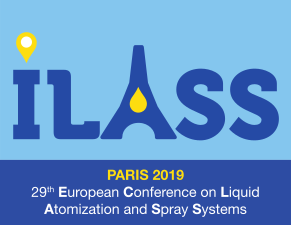Although Diesel engines are still an appropriate power source for transport industry due to their high efficiency, more fundamental research is required to meet the tough environmental emission legislations. In the mixing controlled Diesel combustion, mixing processes and consequently phase change are relevant phenomena whose grasp enables a deepening of the fundamental understanding of internal engine processes. However, possibility of occurrence and potential consequences of supercritical phase change in Diesel engines and its differences from the “classical” evaporation regarding transition characteristics are not fully understood yet. In this study, two different mechanisms of phase change at high pressure and temperature conditions are investigated. Maximum liquid penetration of fuel sprays into nitrogen atmosphere is captured in a constant volume chamber using Mie scattering technique. For different temperatures of injected fuel at different supercritical isothermal ambient conditions, pressure ranges from sub to supercritical regarding to the fuel's critical properties. Based on balances regarding the required enthalpy for phase change, two different 1D models are used in order to predict the maximum liquid length. First, Siebers scaling law is used considering the adiabatic saturation of ambient gas by injected fuel due to mass transfer dominated evaporation into ambient gas before getting to the boiling\critical point. Secondly, considering a dominating heat transfer the fuel is first heated up to the boiling or critical point before the mass transfer starts. This is developed in a modified model based on Siebers scaling law. Both theoretical models are validated against experimental data in order to identify the dominating phase change mechanisms for different fuels and ambient conditions and especially under the influence of the fuel temperature. Results show the significant impact of fuel properties on phase change mechanisms at different ambient conditions.
|
|
|
Proceedings > Papers by author > Wensing MichaelImpact of Fuel Properties on Diesel Spray Phase Change
1 : Institute of Engineering Thermodynamics (LTT), Friedrich-Alexander-University Erlangen-Nuremberg (FAU), Germany
2 : Erlangen Graduate School in Advanced Optical Technologies (SAOT), Friedrich-Alexander-University Erlangen-Nuremberg (FAU), Germany
* : Corresponding author
|
| Online user: 61 | RSS Feed |

|

 PDF version
PDF version